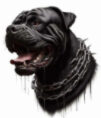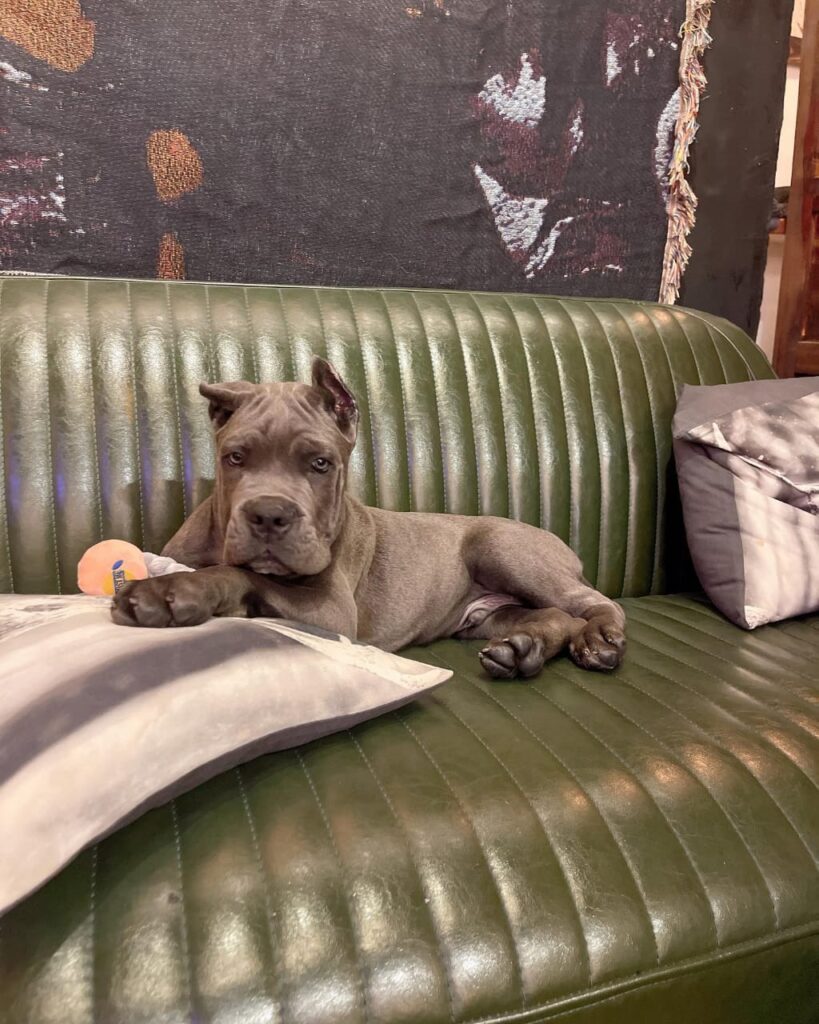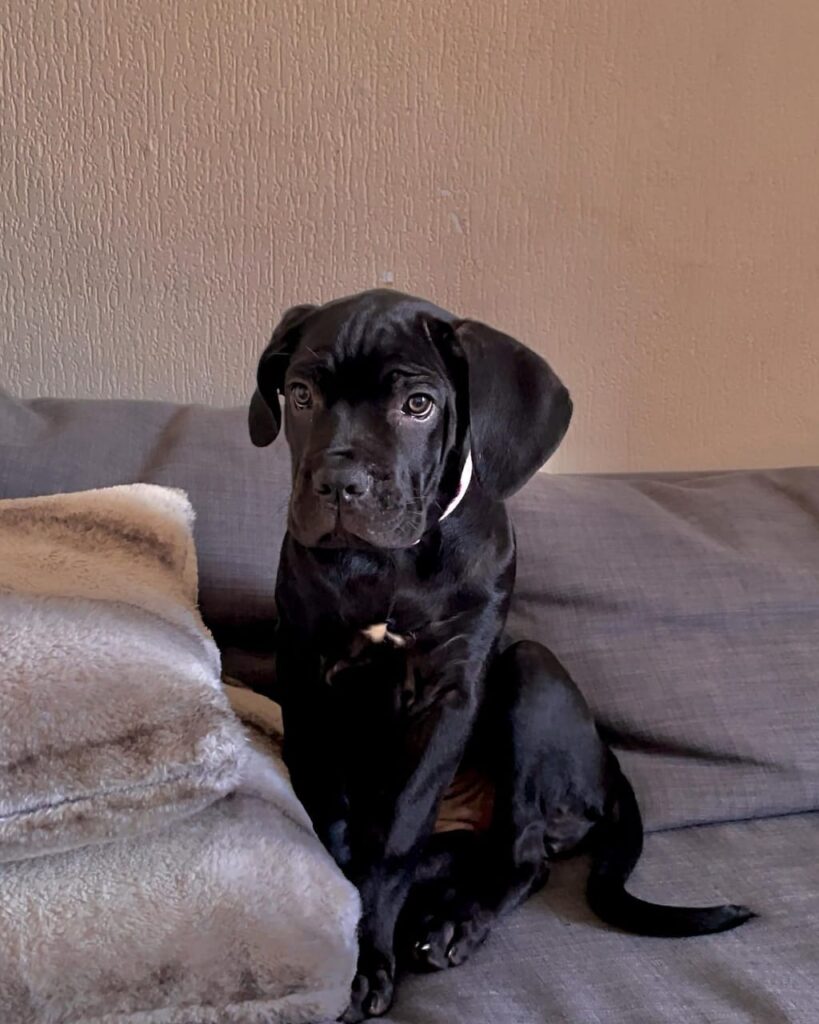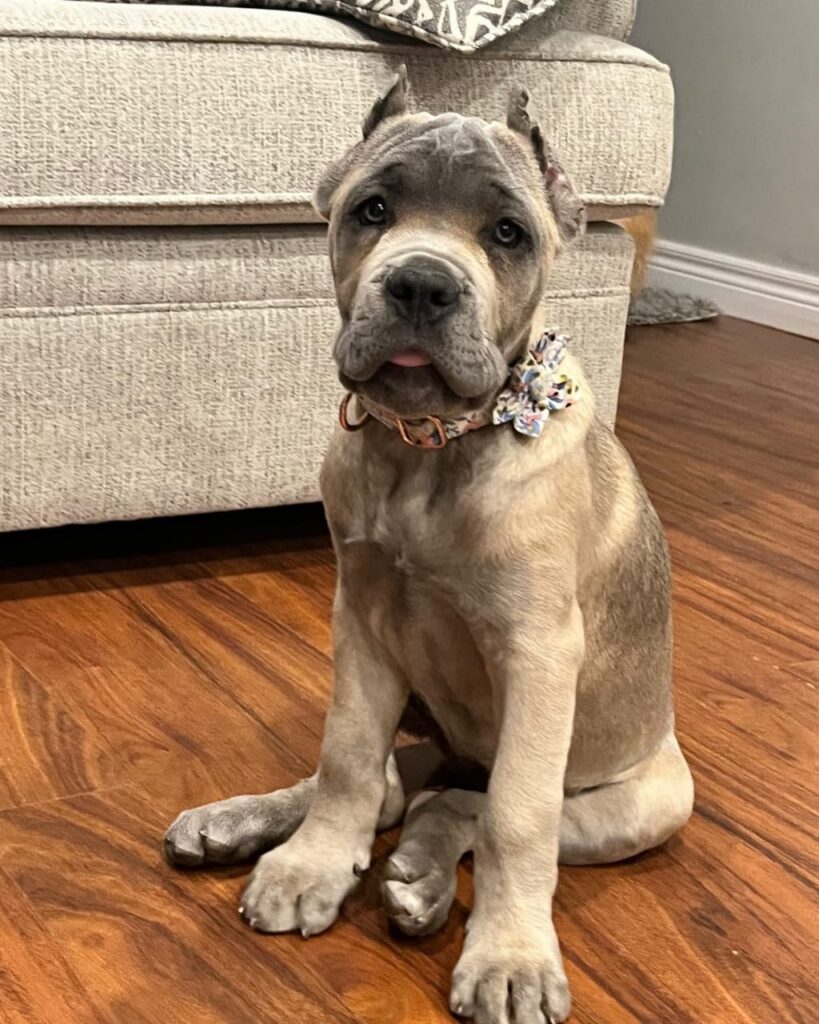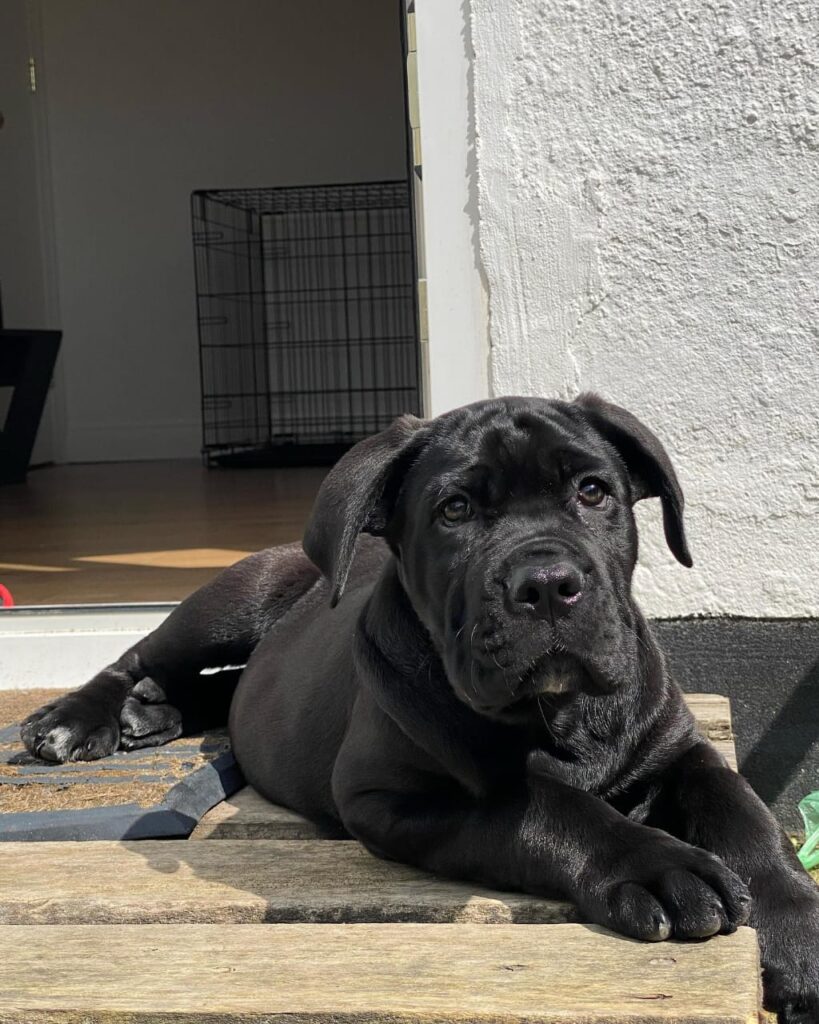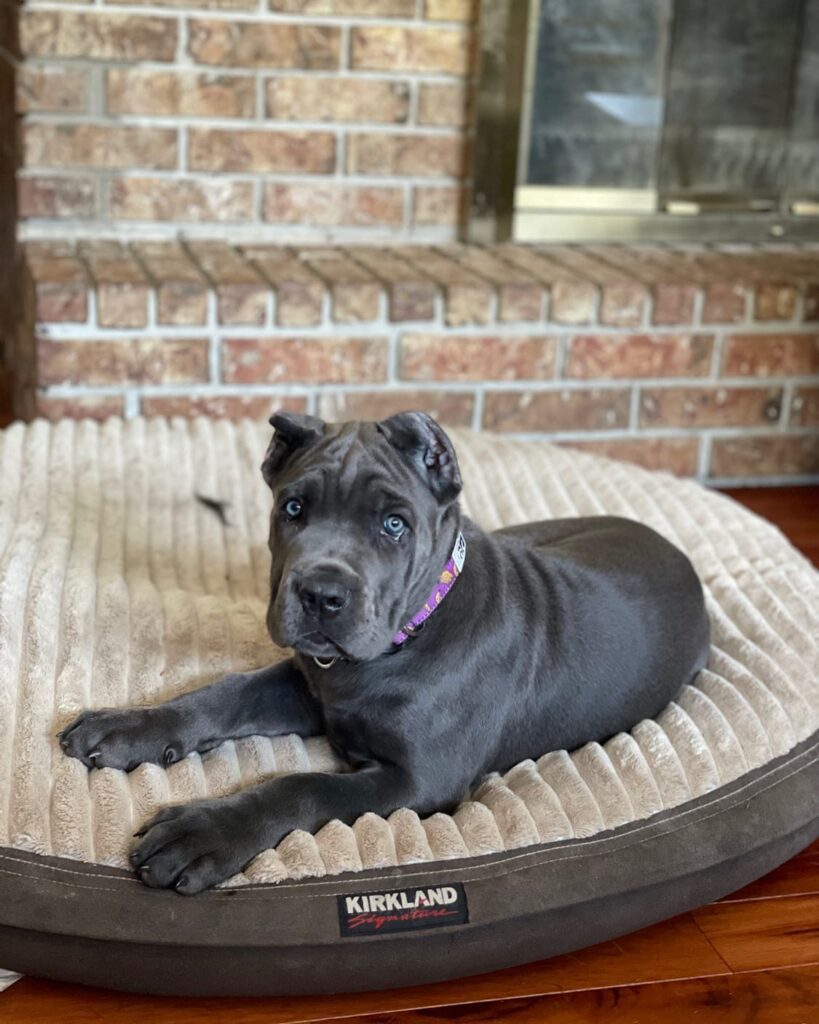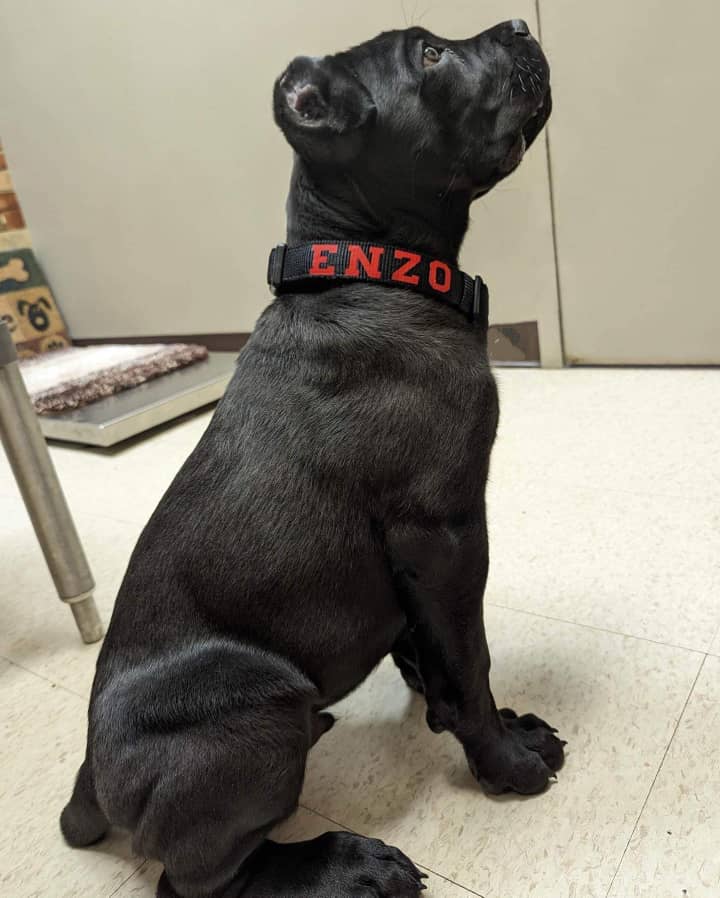CANE CORSO FOR SALE
Our Cane Corso For Sale puppies boast exceptional qualities, including their impressive stature, intelligent demeanor, and unwavering loyalty. Raised in a loving and nurturing environment, they have been socialized from an early age, ensuring they will easily adapt to their new home and family.
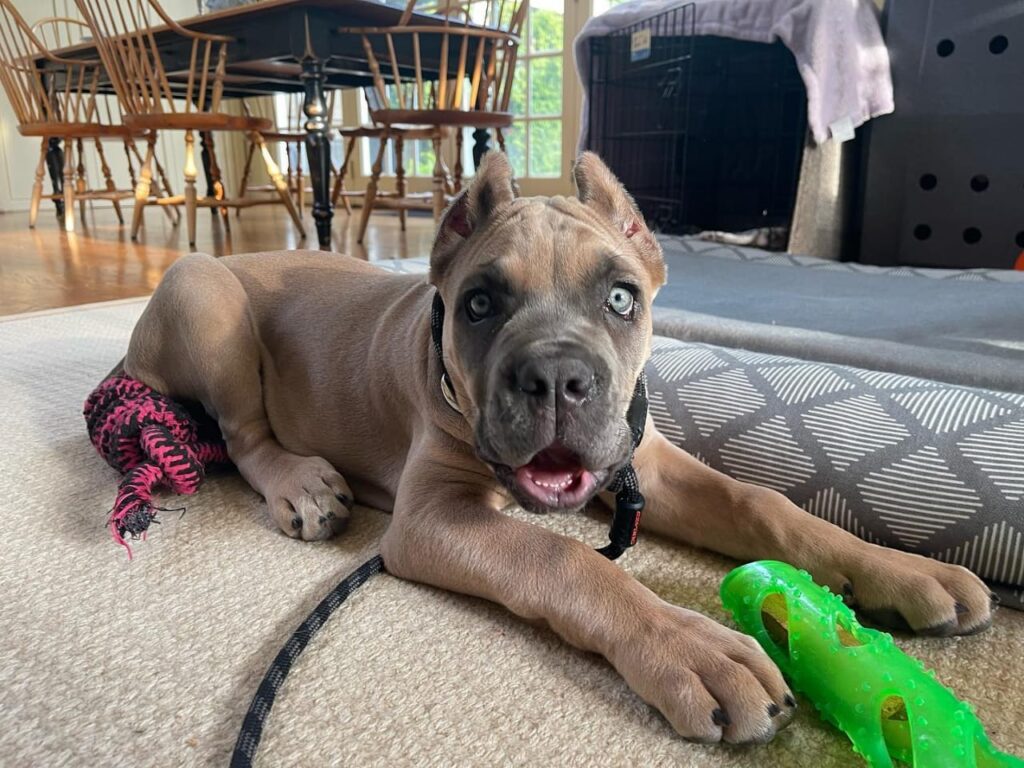
- NAME: MAYA
- GENDER: FEMALE
- VET CHECKED: Yes(Current on all shots)
- STATUS: Available!
- PRICE & SHIPPING: $1050
- AGE: 12 WEEKS

- NAME: SERGINE
- GENDER: FEMALE
- VET CHECKED: Yes(Current on all shots)
- STATUS: Available!
- PRICE & SHIPPING: $1050
- AGE: 12 WEEKS
CANE CORSO FOR SALE OVERVIEW
The kings cane corso for sale today
Regardless of the etymology of the name , the cane corso (pronounced Kah-nay corso) is a working dog through and through, and one whose instinct is to protect their family.
Corsos are typical mastiffs in every sense: large and impressive, intelligent and affectionate, and intensely loyal to their people.
Standing at approximately 27 inches tall and weighing between 80 and 120 pounds, with a large, square head and deep chest, adult corsos have an imposing stature. But ask any corso owner, and you hear a recurring theme: Vandewalle says her first corso, a nine-year-old named Menace, is an affectionate lap dog.
Paulina, owner of Francesca the corso (pictured below) calls her dog “the sweetest.” “She thinks she is a lap dog,” she says, “and always wants to be on top of us.”
Like many powerful, high-drive, or “tough-looking” dogs, like pit bulls, Rottweilers, and German shepherds, corsos have earned a reputation as dangerous, or even aggressive. And, as with all of these dogs, that rep is more than a little unfair if you ask breed experts, and many of the stories of dangerous corsos are actually stories about irresponsible dog owners.
CANE CORSO FOR SALE
Title: Your Ultimate Guide to Finding Cane Corso Puppies for Sale Near You in California
If you’ve been considering adding a Cane Corso puppy to your family, you’re not alone. This majestic breed, known for its powerful build, loyalty, and intelligence, has been gaining popularity among dog lovers across the United States, including California. But before you rush into bringing a new puppy home, it’s essential to do your research and understand what to expect when looking for a Cane Corso puppy for sale near you.
Understanding the Cane Corso Breed
Originally bred in Italy, the Cane Corso is a large, muscular dog with a confident and protective demeanor. They are known for their loyalty, intelligence, and strong work ethic, making them excellent family dogs and watchdogs. Here are some key characteristics of the Cane Corso:
- Size: These large dogs typically weigh between 90 and 120 pounds and can reach a height of 24 to 28 inches at the shoulder.
- Temperament: Cane Corsos are known for being affectionate with their families while also being reserved with strangers, making socialization an important aspect of raising one.
- Exercise Needs: They require regular exercise and mental stimulation to stay healthy and happy. Daily walks, playtime, and training sessions are vital.
Why Choose a Cane Corso Puppy?
- Loyal Companionship: Cane Corsos are known to form strong bonds with their owners, making them incredibly loyal companions.
- Protective Nature: With their natural guarding instincts, Cane Corsos can provide security for you and your family.
- Trainability: This breed is intelligent and eager to please, which makes them relatively easy to train with the right methods.
Finding a Cane Corso Puppy for Sale in California
When it comes to finding your perfect pup, you have several options. Here’s how to navigate the process:
1. Local Breeders
Research reputable breeders near you. Look for breeders who prioritize health testing and responsible breeding practices. Ask about the parent dogs, their health clearances, and the socialization efforts made for the puppies.
- Tips for Choosing a Breeder:
- Visit the breeder’s facilities if possible.
- Ask to meet the puppy’s parents.
- Inquire about health guarantees and contracts.
- Read reviews and seek references from previous puppy buyers.
2. Rescue Organizations and Shelters
Consider adopting from a rescue organization or animal shelter. Many Cane Corsos find themselves in need of a loving home, and adopting is a rewarding option that saves lives.
- How to Find a Cane Corso Rescue:
- Search for breed-specific rescues in California.
- Check with local animal shelters.
- Join online groups dedicated to Cane Corso rescues and adoptions.
3. Online Resources
Many websites list puppies for sale from breeders across the country. Websites like PuppyFinder, AKC Marketplace, or even local classifieds can help you find Cane Corso puppies near you. Make sure to vet breeders or sellers thoroughly before committing.
4. Word of Mouth
Talk to friends, family, or local dog trainers who might know of available puppies or reputable breeders. Networking within the community can often lead to the best recommendations.
Preparing for Your Cane Corso Puppy
Once you’ve found the perfect Cane Corso puppy, it’s time to prepare for their arrival. Consider the following:
- Supplies: Purchase essential supplies such as a quality dog bed, food and water bowls, toys, leash, collar, and high-quality puppy food.
- Training and Socialization: Start training and socialization early. Enroll in puppy classes that focus on positive reinforcement methods.
- Veterinary Care: Schedule a vet appointment soon after bringing your puppy home for vaccinations and health checks.
Final Thoughts
Bringing a Cane Corso puppy into your life is a rewarding experience filled with joy, loyalty, and companionship. Whether you choose to adopt or buy from a breeder, take the time to educate yourself about the breed, and prepare properly for your new furry family member. Remember, a well-researched and thoughtful approach to bringing home a Cane Corso will lead to a happier, healthier bond between you and your new companion.
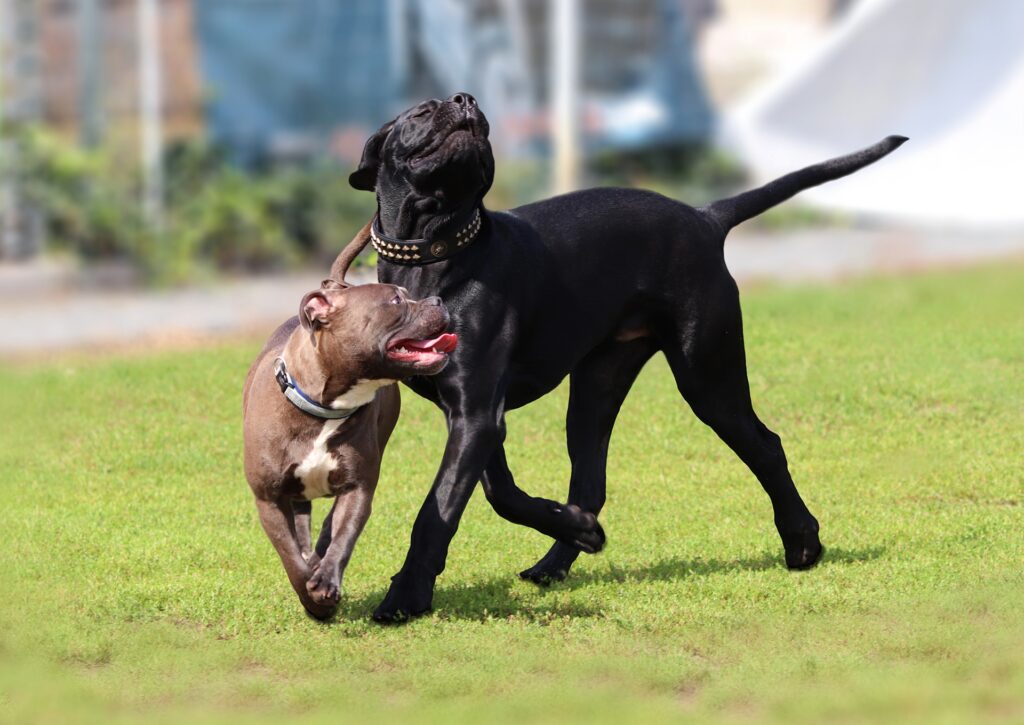
If you’re ready to find a Cane Corso puppy for sale near you in California, begin your search today—your future furry friend is waiting!
